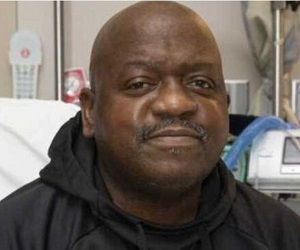The first patient to receive a genetically modified pig kidney has died nearly two months after the surgery, his family and the hospital that performed it said on Saturday.
Richard ‘Rick’ Slayman underwent the transplant at Massachusetts General Hospital in March at the age of 62. Surgeons said they believed the pig kidney would last at least two years.
The transplant team at Massachusetts General Hospital said in a statement they were deeply saddened by Slayman’s death and offered condolences to his family. They said they had no indication that he had died as a result of the transplant.
The man from Weymouth, Massachusetts, was the first living person to undergo the procedure. Previously, pig kidneys had been transplanted temporarily into brain-dead donors. Two men received pig heart transplants, but both died within a few months.
Slayman underwent a kidney transplant at the hospital in 2018, but had to undergo dialysis again last year when he showed signs of failure. When dialysis complications arose that required frequent procedures, his doctors suggested a pig kidney transplant.
In a statement, Slayman’s family thanked his doctors.
‘Their tremendous efforts at the forefront of the xenotransplantation provided our family with seven more weeks with Rick, and the memories we created during that time will remain in our minds and hearts,’ the statement said.
Slayman underwent the operation in part to give hope to the thousands of people who need a transplant to survive.
Rick achieved his goal and his hope and optimism will live on forever,’ the statement said.
Xenotransplantation involves curing human patients with animal cells, tissues or organs. These attempts have long failed because the human immune system immediately destroyed the foreign animal tissue. Recent attempts have been made with pigs modified to make their organs more human-like.
More than 100,000 people are on the national transplant waiting list, most of them kidney patients, and thousands die each year before their turn comes.
(With information from AP)




